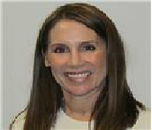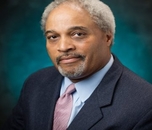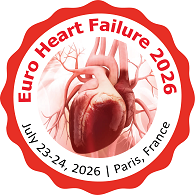About Conference
About Conference
On behalf of the 37th European Heart & Heart Failure Congress Committee we invite all the eminent speakers around the world to attend the EURO HEART FAILURE 2026 conference scheduled on July 23-24, 202 6 at Paris, France
EURO HEART FAILURE 2026 The incorporation of new technologies and research findings will be a special focus of the Congress. It will also bring together expert clinicians, researchers and leaders of cardiac health stakeholder organisations, offering an outstanding set of plenary and state-of - the-art lectures, educational courses, Online symposia with experts and sessions designed by cardiology professionals and cardiac specialists and for early careers.
The main aim of is to provide an excellent platform for the exchange of ideas and authoritative opinions by leading scientists covering the entire spectrum of cardiovascular disease and heart failure research and sharing the cross-cultural experiences of different treatment procedures.
EURO HEART FAILURE 2026 is an international conference of cardiologists and heart failure committee to discuss the future of cardiac health and cardiovascular disorders in terms of collaboration, structures and organizational development and advances in cardio-metabolic health and Interventional Cardiology.
Theme: "Bridging Generations, Uniting Disciplines, Advancing Heart Failure Care"
Why to attend???
With members from around the world concentrated on learning about cardiothoracic and its advances; this is your best opportunity to reach the biggest summit of participants from the cardiology & coronary disease community. Lead presentations, distribute information, meet with current and potential scientists, mark a splash with new drug developments, and receive name recognition at this 2-day conference. Well known renowned speakers, the most recent techniques, developments, and the newest updates in Cardiothoracic are signs of this Event.
The participants can find exclusive sessions and panel discussions on latest revolutions in Cardiac Surgeries and Heart Failure by:
-
Lectures from renowned speakers
-
Keynote forums by Prominent Professors
-
Open Invention Challenges
-
Live video presentations by Young Researchers
-
Unique techniques to improve your research
-
Perfect platform for World-wide business and Networking opportunities
-
Come across with the editors of referred journals, Society and Association members across the world
Target Audience:
-
Cardiology Scientists
-
Cardiac Physicians
-
Cardiac Nurses
-
Heart Disease Researchers
-
Cardiology Fellows
-
Neuro-Cardiology Experts
-
Medical Colleges
-
Cardiology Associations and Societies
-
Manufacturing Medical Devices Companies
-
Business Entrepreneurs
-
Training Institutes
Sessions
Track 1: Heart Diseases: Unlike cardiovascular diseases, which characterize problems with the blood vessels and circulatory system as well as the heart, heart disease specify to issues & deformities in the heart itself.
There are many types of heart diseases & major types are listed here
-
Congenital heart disease
-
Arrhythmia
-
Coronary artery disease
-
Dilated cardiomyopathy
-
Myocardial infarction
-
Heart failure
-
Mitral regurgitation
-
Mitral Valve Prolapse
Heart diseases are caused due to different reasons & the major symptoms of Heart diseases are:
-
Fluttering in the Chest
-
Rapid heartbeats (Tachycardia)
-
Slow heart beats (Bradycardia)
-
Chest Pain
-
Shortness of breath
-
Dizziness
-
Discomfort
Cardiology Associations:
The American Society for Preventive Cardiology | American Society of Nuclear Cardiology | American Heart Association | European Society of Cardiology | British Cardiovascular Society | World Heart Federation | Asian Pacific Society of Cardiology | Cardiac Society of Australia & New Zealand | Russian Society of Cardiology.
Track 2: Heart Failure: Heart failure is caused due to failure of heart to pump an in-adequate supply of oxygen rich blood which causes disruption in functioning of body. Heart failure is a condition of collection of symptoms which weakens your heart
Symptoms of Heart Failure:
-
Excessive Fatigue
-
Abdominal Swelling
-
shortness of breath
-
heart palpitations
-
a loss of appetite
-
sudden weight gain
Cardiology Associations:
American Stroke Association | Society for Cardiovascular Angiography and Intervention | Arizona Society of Echocardiography | British Association for Cardiovascular Prevention and Rehabilitation | World Heart Failure Society | Austrian Heart Foundation | The Japanese Heart Failure Society | Japanese Society of Echocardiography | The World Society of Cardiovascular & Thoracic Surgeons
Track 3: Arrhythmias: An arrhythmia is caused by an interruption of your heart’s normal electrical system, which regulates your heart rate and heart rhythm. Usually arrhythmias are completely benign and inconsequential, while few are extremely dangerous and life-threatening. And some of them, while not particularly dangerous, produce symptoms that can be quite disruptive to your life. One of the major causes which causes arrhythmias would include Diabetes, Mental Stress & Smoking
Cardiology Associations:
The American Society for Preventive Cardiology | American Society of Nuclear Cardiology | American Heart Association | European Society of Cardiology | British Cardiovascular Society | World Heart Federation | Asian Pacific Society of Cardiology | Cardiac Society of Australia & New Zealand | Russian Society of Cardiology.
Track 4: Hypertension: Hypertension is determined by the amount of blood your heart pumps and the amount of resistance to blood flow in your arteries. High blood pressure or hypertension increases the risk of heart disease and Cardiac arrest. You can have high hypertension for years without any symptoms & without symptoms, it can cause damage to blood vessels and your heart continues and can be detected. Treatment for hypertension is necessary which includes both prescription medication and healthy lifestyle changes. If the conditions aren’t treated, it could lead to health issues, including heart attack and stroke
Cardiology Associations:
American Stroke Association | Society for Cardiovascular Angiography and Intervention | Arizona Society of Echocardiography | British Association for Cardiovascular Prevention and Rehabilitation | World Heart Failure Society | Austrian Heart Foundation | The Japanese Heart Failure Society | Japanese Society of Echocardiography | The World Society of Cardiovascular & Thoracic Surgeons
Track 5: Molecular Cardiology: Molecular Cardiology is basically the study of genetic heart disorders. It applies molecular biology techniques to study the mechanism of human cardiovascular diseases. It also uses clinical cases to discover novel pathways that regulate metabolic diseases, aging, Cardiac hypertrophy
Cardiology Associations:
The American Society for Preventive Cardiology | American Society of Nuclear Cardiology | American Heart Association | European Society of Cardiology | British Cardiovascular Society | World Heart Federation | Asian Pacific Society of Cardiology | Cardiac Society of Australia & New Zealand | Russian Society of Cardiology.
Track 6: Pediatric Cardiology: Pediatric cardiologists are the ones who diagnose, treat, and manage heart problems in children, including Congenital heart diseases where the children are born with holes between chambers of the heat or valve problems or abnormal blood vessels
Cardiology Associations:
American Stroke Association | Society for Cardiovascular Angiography and Intervention | Arizona Society of Echocardiography | British Association for Cardiovascular Prevention and Rehabilitation | World Heart Failure Society | Austrian Heart Foundation | The Japanese Heart Failure Society | Japanese Society of Echocardiography | The World Society of Cardiovascular & Thoracic Surgeons
Track 7: Cardio metabolic Health: Cardio metabolic health is a relatively new discover of term that encompasses cardiovascular and metabolic diseases which includes type 2 diabetes and metabolic syndrome. Resulting in such conditions is the leading cause of preventable death worldwide. The symptoms share a common risk factor like overweight, hypertension etc. which can be controlled by diet plan change & change in lifestyle
Cardiology Associations:
The American Society for Preventive Cardiology | American Society of Nuclear Cardiology | American Heart Association | European Society of Cardiology | British Cardiovascular Society | World Heart Federation | Asian Pacific Society of Cardiology | Cardiac Society of Australia & New Zealand | Russian Society of Cardiology.
Track 8: Diabetes: People who are having diabetes are more likely to develop heart disease and have a greater risk of a heart attack or a stroke. They develop certain conditions, or risk factors, that increase the chances of having heart disease or stroke, such as high blood pressure or high cholesterol.
If you have diagnosed with diabetes, you need to protect your heart and health by managing your blood glucose levels, which is also called as blood sugar, as well as your blood pressure and cholesterol
Cardiology Associations:
American Stroke Association | Society for Cardiovascular Angiography and Intervention | Arizona Society of Echocardiography | British Association for Cardiovascular Prevention and Rehabilitation | World Heart Failure Society | Austrian Heart Foundation | The Japanese Heart Failure Society | Japanese Society of Echocardiography | The World Society of Cardiovascular & Thoracic Surgeons
Track 9: Interventional Cardiology: An interventional cardiologist recommends the patients to undergo an angiogram in order to gather precise information about blockage in the arteries. An interventional cardiologist will undergo one to two years of additional education and training in diagnosing & treating the heart diseases conditions. Additional to that they also diagnose and treat structural heart condition through catheter based procedures such as stenting & angioplasty
Cardiology Associations:
The American Society for Preventive Cardiology | American Society of Nuclear Cardiology | American Heart Association | European Society of Cardiology | British Cardiovascular Society | World Heart Federation | Asian Pacific Society of Cardiology | Cardiac Society of Australia & New Zealand | Russian Society of Cardiology.
Track 10: Cardiovascular Medicine: The Medicine which is used to treat various related cardiovascular diseases. Treatment of heart and cardiovascular ailments frequently requires the organization of various prescriptions for extensive stretches of time to patients prone to be old and experiencing a scope of comorbid conditions level headed endorsing is recommended by clinical pharmacology is basic if the correct medication is to be regulated to the correct patient, at the ideal time, and at the correct cost.
This requires a valuation for the key standards of clinical pharmacology, and explicit information of individual treatments. Cardiovascular Toxicology collectively deals with the adverse effects on the heart or blood systems which result from exposure to toxic chemicals. It can be also caused due to any drug-drug interaction or drug induced action. It may result in severe heart diseases conditions
Cardiology Associations:
American Stroke Association | Society for Cardiovascular Angiography and Intervention | Arizona Society of Echocardiography | British Association for Cardiovascular Prevention and Rehabilitation | World Heart Failure Society | Austrian Heart Foundation | The Japanese Heart Failure Society | Japanese Society of Echocardiography | The World Society of Cardiovascular & Thoracic Surgeons
Track 11: Nuclear Cardiology: Nuclear cardiology deals with the study & use of non-invasive techniques to assess myocardial blood flow to evaluate the pumping function of the heart as well as visualize the size and location of a heart attack. The major techniques of nuclear cardiology are myocardial perfusion imaging which is the most widely used
Cardiology Associations:
The American Society for Preventive Cardiology | American Society of Nuclear Cardiology | American Heart Association | European Society of Cardiology | British Cardiovascular Society | World Heart Federation | Asian Pacific Society of Cardiology | Cardiac Society of Australia & New Zealand | Russian Society of Cardiology.
Track 12: Myocardial Perfusion Imaging: Myocardial perfusion images are combined by performing exercise to assess the blood flow to the heart muscle.
Cardiology Associations:
American Stroke Association | Society for Cardiovascular Angiography and Intervention | Arizona Society of Echocardiography | British Association for Cardiovascular Prevention and Rehabilitation | World Heart Failure Society | Austrian Heart Foundation | The Japanese Heart Failure Society | Japanese Society of Echocardiography | The World Society of Cardiovascular & Thoracic Surgeons
Track 13: Cardio-oncology: Cardio-oncology is the crossway of heart conditions in patients who have been treated for cancer. Cardiologists can determine patients for potential risk of developing heart conditions if patients take certain types of cancer drugs, or following any radiation treatment to the chest
Cardiology Associations:
The American Society for Preventive Cardiology | American Society of Nuclear Cardiology | American Heart Association | European Society of Cardiology | British Cardiovascular Society | World Heart Federation | Asian Pacific Society of Cardiology | Cardiac Society of Australia & New Zealand | Russian Society of Cardiology.
Track 14: Neuro-cardiology: Neuro-cardiology is the study of neurological, neuroanatomical, and the neurophysiological aspects of cardiology. It also includes the neurological origins of cardiac disorders. The effects of stress on the heart are studied in terms with both the peripheral nervous system and the central nervous system
Cardiology Associations:
American Stroke Association | Society for Cardiovascular Angiography and Intervention | Arizona Society of Echocardiography | British Association for Cardiovascular Prevention and Rehabilitation | World Heart Failure Society | Austrian Heart Foundation | The Japanese Heart Failure Society | Japanese Society of Echocardiography | The World Society of Cardiovascular & Thoracic Surgeons
Track 15: Heart diseases in Women: Heart diseases in Women are the leading killer of women all around the world. However identifying the symptoms & treating them can save many lives. The major symptoms of Heart diseases in women are:
-
Pain in either one or both arms
-
Dizziness and Unusual fatigue
-
Pain in Neck, shoulder, upper back, jaw or abdominal discomfort
-
Sweating, Nausea or vomiting
-
Shortness of breath
Cardiology Associations:
The American Society for Preventive Cardiology | American Society of Nuclear Cardiology | American Heart Association | European Society of Cardiology | British Cardiovascular Society | World Heart Federation | Asian Pacific Society of Cardiology | Cardiac Society of Australia & New Zealand | Russian Society of Cardiology.
Track 16: Geriatric Cardiology: Geriatric cardiology is the branch of medicine and cardiology that deals with the cardiovascular disorders in elderly persons. Heart disorders such as arrhythmias (as atrial fibrillation), coronary heart disease including myocardial infarction, heart failure, cardiomyopathy, and others are common and are a major cause of mortality in elderly people. Collectively Vascular disorders such as atherosclerosis and peripheral arterial disease cause significant morbidity and mortality in aged people
Cardiology Associations:
American Stroke Association | Society for Cardiovascular Angiography and Intervention | Arizona Society of Echocardiography | British Association for Cardiovascular Prevention and Rehabilitation | World Heart Failure Society | Austrian Heart Foundation | The Japanese Heart Failure Society | Japanese Society of Echocardiography | The World Society of Cardiovascular & Thoracic Surgeons
Track 17: Artificial Intelligence in Cardiology: Artificial intelligence (AI) is a rapidly evolving field in medicine, especially in cardiology. Artificial intelligence is defined as the ‘theory and Implementations of computer systems able to perform tasks normally requiring human intelligence’. By creating algorithms using a variety of neural networks, we enable dynamic deep machine learning. Deep machine learning mimics the human brain by using large high-quality data sets to create layers of neural networks to generate automated predictions, interpret image data and develop pattern recognition. AI aims to aid cardiologists in making better decisions, improve workflow, productivity, and cost-effectiveness and ultimately patient outcomes.
Cardiology Associations:
The American Society for Preventive Cardiology | American Society of Nuclear Cardiology | American Heart Association | European Society of Cardiology | British Cardiovascular Society | World Heart Federation | Asian Pacific Society of Cardiology | Cardiac Society of Australia & New Zealand | Russian Society of Cardiology.
Track 18: Cardiac Nursing: Cardiac Nursing is a Speciality to fame that works with patients who experience the side effects in various states of the cardiovascular system. Cardiac nurses treat conditions like unstable angina, myocardial infractions, Coronary artery disease, cardiomyopathy, Cardiac dysrhythmia and congestive cardiovascular breakdown under the supervision of a cardiologist. Cardiac nurses perform postoperative consideration on stress-test evaluations, surgical units, cardiac monitoring, health evaluations, and vascular monitoring. Cardiac nurses should have more advanced in Cardiac Life Support and Basic Life Support certification. Cardiac nurses must have specific aptitudes including defibrillation, electrocardiogram checking and drug organization by constant intravenous dribble. Cardiac nurses care for individuals with cardiovascular ailment and collaborate with their patient's families. They may screen and treat intensely ill patients, or they may
Concentrate on cardiovascular recovery helping patients make lifestyle changes to prevent the worsening of their disease
Cardiology Associations:
American Stroke Association | Society for Cardiovascular Angiography and Intervention | Arizona Society of Echocardiography | British Association for Cardiovascular Prevention and Rehabilitation | World Heart Failure Society | Austrian Heart Foundation | The Japanese Heart Failure Society | Japanese Society of Echocardiography | The World Society of Cardiovascular & Thoracic Surgeons
Track 19: Cardiac diagnostic tests: New tests are always being implemented to assist the comprehension of the disease, injury, and congenital (present during childbirth) or acquired abnormalities of the heart. The diagnostic procedures in cardiology are the techniques for identifying heart conditions associated with healthy vs. unhealthy, pathologic cardiac function.
Cardiology Associations:
The American Society for Preventive Cardiology | American Society of Nuclear Cardiology | American Heart Association | European Society of Cardiology | British Cardiovascular Society | World Heart Federation | Asian Pacific Society of Cardiology | Cardiac Society of Australia & New Zealand | Russian Society of Cardiology.
Track 20: Cardiac Surgery: Cardiovascular surgery is also known as cardio thoracic surgery- which is operated on heart by the cardiac surgeons involved in surgical treatment of organs inside the thorax.
There are major types of cardiac surgeries performed are
Cardiology Associations:
American Stroke Association | Society for Cardiovascular Angiography and Intervention | Arizona Society of Echocardiography | British Association for Cardiovascular Prevention and Rehabilitation | World Heart Failure Society | Austrian Heart Foundation | The Japanese Heart Failure Society | Japanese Society of Echocardiography | The World Society of Cardiovascular & Thoracic Surgeons
Track 21: Clinical cases in cardiology: Our all Cardiology conferences 2020 have Case Studies that act as informative guides to the people who may also face comparable issues. Usually, Case Studies in Cardiovascular Medicine 2020, should detail a specific therapeutic case, reporting the medical history of the patient. They should discuss examinations attempted in order to decide a diagnosis or differentiate between possible diagnoses and should indicate the sort of treatment the patient experienced accordingly. In one piece we can conclude that Case Studies is a valuable and instructive piece of every physician’s or doctor's medicinal studies, which really urge us to include this session track on our international heart failure congress 2020 which will be held at Paris, France.
Cardiology Associations:
The American Society for Preventive Cardiology | American Society of Nuclear Cardiology | American Heart Association | European Society of Cardiology | British Cardiovascular Society | World Heart Federation | Asian Pacific Society of Cardiology | Cardiac Society of Australia & New Zealand | Russian Society of Cardiology.
Market Analysis
Heart failure affects people of all ages, from children and young adults to the middle-aged and the senior citizens. Almost 1.4 million persons with CHD are under 60 years of age. CHD is present in 2 percent of persons age 40 to 59. More than 5 percent of persons age 60 to 69 have CHD.
According to the latest WHO data published in 2017 Coronary Heart Disease Demises in France reached 33,637 or 35.02% of total deaths. Survival rates in patients with heart failure were 75.9% (95% confidence interval 75.5% to 76.3%) at one year, 45.5% (45.1 to 46.0) at five years, 24.5% (23.9 to 25.0) at 10 years, and 12.7% (11.9 to 13.5) at 15 years.
Since 2006 to 2016, the yearly mortality rate creditable to coronary heart disease declined 31.8% and the actual number of deaths declined 14.6%, but the problem and risk factors remain terrifyingly high. The estimated direct and indirect cost of heart disease in 2015 to 2016 (average annual) was $218.7 billion.
Growth of Cardiology Market:-
Overall, one, five, and 10 year survival rates increased by 6.6% (from 74.2% in 2000 to 80.8% in 2016), 7.2% (from 41.0% in 2000 to 48.2% in 2012), and 6.4% (from 19.8% in 2000 to 26.2% in 2007), respectively. There were 30 906 demises in the heart failure group over the study period. Heart failure was listed on the death record in 13 093 (42.4%) of these patients, and in 2237 (7.2%) it was the primary cause of death. Improvement in survival was greater for patients not requiring admission to hospital around the time of diagnosis (median difference 2.4 years; 5.3 v 2.9 years, P<0.001). There was a deprivation gap in median survival of 0.5 years between people who were least deprived and those who were most deprived (4.6 v 4.1 years, P<0.001).
The goal of this is to evaluate cardiovascular risk among the France population quantify the impact of main risk factors on cardiovascular mortality and to identify potential modifiable factors for improving the cardiovascular health.
Treatment:
The FDA approved the combination tablet sacubitril/valsartan (Entresto) in 2015 to reduce the risk of cardiovascular death and hospitalization for heart failure in patients with NYHA class II-IV heart failure and reduced ejection fraction.
-
Coronary bypass surgery
-
Heart valve repair or replacement
-
Implantable cardioverter-defibrillators (ICDs)
-
Cardiac resynchronization therapy (CRT)
-
Ventricular assist devices (VADs)
-
Heart transplant.
So cardiology conferences are going to be a good success today because the awareness for the treatment of vas diseases is enormously essential among the individuals and everyone can come back to grasp about the new researches happening and innovations within the field of medicine.











